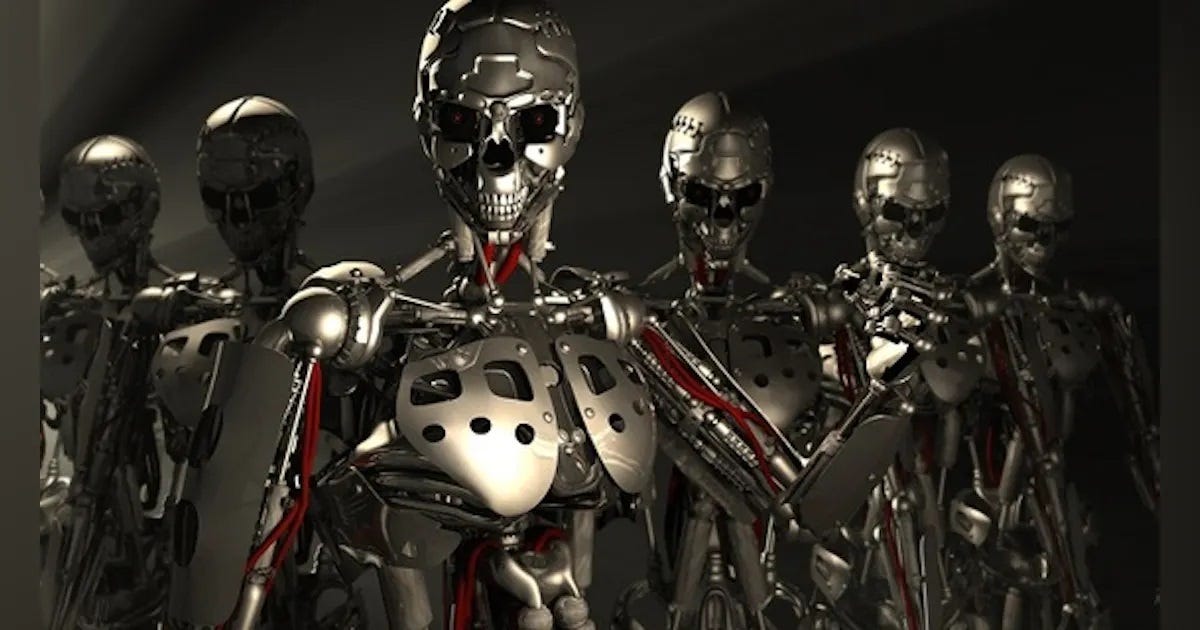I spent three decades as a computer software developer. I was one of the “early adopters” when personal computers became available to the masses back around 1980. My first computer was a Radio Shack TRS-80 Model 3. It had a whopping 128k (that’s Kilobytes, not Megabytes, and certainly not Gigabytes) of memory - and not one but two floppy disk drives! On this amazing machine, I taught myself the fundamentals of programming.
In the years since, computer technology has exploded. The incredible tools that software developers now have at their fingertips are simply amazing. Today, just about anything and everything you do will involve a computer in some way. Heck, just consider this blog you’re reading right now!
From the very beginning, the words “Artificial Intelligence” (AI) was part of the programmer’s vocabulary. After all, computers could make decisions, based on the data they were fed. Is that not a condensed definition of “intelligence?” One of my early programming exercises was a little program I wrote that could compose a paragraph of grammatically-correct text based on user answers to some questions. Wouldn’t you say that my program was “intelligent?”
The programming community had a lot of discussion on the topic. In general, it was somewhat agreed that “artificial intelligence” was really nothing more than advanced, hi-level programming. But it’s definitely a grey area.
Nowadays, there are multitudes of “high-level” computer programming all around us that we take for granted. Some of it has been around for quite some time. Aircraft have an auto-pilot that can fly the whole route. Factories have robots that do much of the work. Search engines like Google accept questions, and give pretty good answers. Translation software can move phrases between languages. Spell-checkers and grammar-checkers parse my typing. Cameras can recognize faces and correct “red-eye” and apply other exotic tricks. Musicians can use audio-adjusting software that can “fix” off-key notes sung by imperfect singers.
Some of this technology may go a bit too far. There are sailboats where all the lines, sheets, halyards, winches, steering, and other controls are connected to a computer which gathers real-time data on wind and weather and currents and GPS location and such. You just punch in where you want to go, and the computer sails the boat - hands-free! As a sailor, I’m not too keen on the concept (and neither is the sailing community, from what I’ve read).
Then you have self-driving cars. Count me among the skeptics who believe there are too many random, unpredictable situations involved with driving a car that cannot be automated. Recently on NBC Nightly News was a story where the reporter tested one from the back seat. The car came to a construction zone where it just… stopped, unable to figure out what to do. A long line of angry, horn-honking vehicles stacked up behind them (the reporter called the user hotline, and they... sent out a human driver). As I have repeatedly preached: the solution to problems caused by too many cars and trucks lies in getting government OUT of the transportation business - not trying to design cars that travel on government roads without a driver.
In November 2022, the latest high-level, game-changing AI software was released: ChatGPT, a language-model based chatbot that anybody could use. I spent some time playing with it to see what it could do. I fed it questions about science, religion, politics, travel, music, and even some nonsensical stuff. I even made up a character and asked it to write a story - which it did. The amazing thing was that it felt like I was talking to a real human!
In the intervening months, other software companies have jumped into the competition. Since then, many otherwise intelligent people have gone bonkers, including the high-tech industry itself. Claiming that this newest technology will destroy us all, they are screaming for government to “Regulate us.”
Here we go again. Human history can be summed up as follows: somebody is always figuring out a better way to do things or solve problems. And every time an innovator does just that, people wail and scream that it will destroy jobs, destroy the economy, destroy our way of life, and destroy us. And so, government must DO something about it!! And by “do” something, they mean to write more laws and send out armed enforcers with the power to arrest, punish, fine, and imprison people.
In fairness, yes, newer technologies and innovative ways to do things better do indeed cause societal changes. When the electronic transistor came out, it did indeed kick all the vacuum tube makers out of a job. Change can be painful. For a brief moment.
The funny thing is: with all the innovative solutions that have been invented over the eons, the economy has not collapsed. Jobs still exist. In fact, with each new innovation, the standard of living all around goes up, not down. Why? Mainly because the newer way requires higher skill levels, and pays more money than the old way. If you invent a machine that picks apples, yes it puts apple-pickers out of work - but now you need people to design, build, sell, install, train, and service the apple-picking machines, and those jobs pay a heckuva lot more than an apple-picker!
Anyway, regarding these swanky new AI tools, society will figure out how to use them productively. Granted, there may be kinks to work out, such as plagiarism. What’s to prevent students from copying-and-pasting AI-generated text like the story it wrote for me, and turning that in as their “writing” assignment? Well, let’s let the education community work that out, NOT politicians and bureaucrats.
Besides, AI output is only as good as the programmers who designed it. AI-generated text, such as that story, are only be as good as the writers and storytellers who work on it. If AI tools like this catch on, we’re going to need a lot of talented, high-paid programmers and writers!









Pretty cool. I still have my first TRS80. It used cassettes instead of discs, but we thought it was the greatest thing ever.